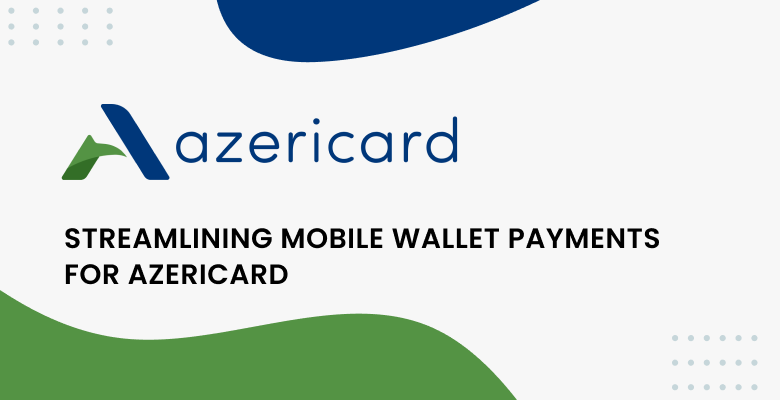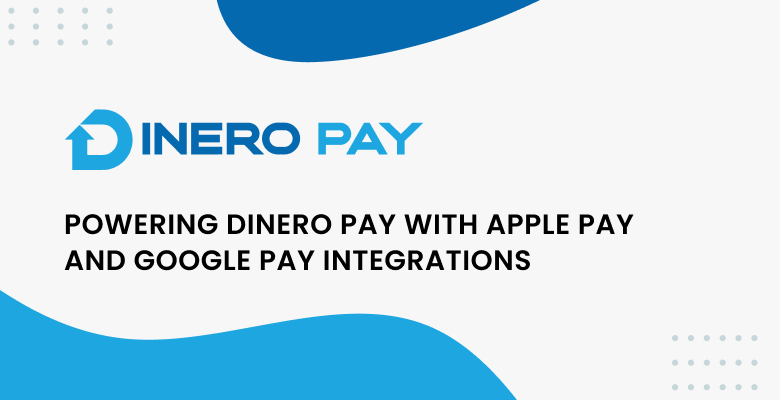
Imagine a payment ecosystem so seamless that every transaction fuels your growth. Today, credit card transactions account for about 30% of all retail sales worldwide, and remain of great importance to other industries as well. For many businesses, the right choice of credit card processing partner is a cornerstone of success.
This article unpacks the essentials of credit card processing companies, key selection criteria, and a curated list of the top-rated credit card processing companies for 2026. Plus, we’ll explore alternatives to credit card processing companies and how they can benefit your business.
What to consider when choosing among credit card processing companies
A credit card processing business serves as the technological bridge between a merchant and its customers, enabling the secure processing of digital card payments.
In simple terms, a credit card processor supplies merchants with a technical infrastructure layer to accept card payments online. Their core responsibilities include:
- Verifying card validity and available funds.
- Routing funds from the customer bank to the merchant after a successful transaction.
- Implementing fraud prevention to protect cardholder data.
- Providing secure infrastructure for card payments on websites or apps.
- Supplying hardware and software to support in-person or online processing.
When picking a processor, clarity on your business needs is critical. Here’s what matters most:
- Processing Fees and Pricing Structure – Compare interchange-plus, flat-rate, and tiered pricing models to understand total costs
- Global Reach and Currency Support – Assess international processing capabilities and multi-currency handling
- Integration Complexity – Evaluate API quality, documentation, and technical implementation requirements
- Settlement Timeframes – Consider funding speed and cash flow impact on operations
- Security and Compliance Standards – Verify PCI DSS compliance levels and fraud protection measures
- Customer Support Quality – Analyze technical support availability and response times
- Scalability and Volume Handling – Ensure infrastructure can accommodate growth projections
- Risk Management Capabilities – Review underwriting processes and risk assessment tools
And one more thing, last but not least. The payments market shifts quickly. Today’s environment demands adaptability:
- Contactless and mobile payments now account for half of in-person transactions
- Security and fraud prevention remain critical as global fraud losses may reach $43 billion by 2026
- Customer loyalty features like tokenization and recurring billing are onboarded faster
- Regional acquiring and smart routing become essential for lower declines
That’s why your chosen partner must not only meet your current needs but also demonstrate a clear roadmap for future innovation.
With those criteria in mind, let’s look at the top-rated credit card processing companies.
Top credit card processing companies: A representative list including beneficial alternatives
Navigating the crowded field of credit card payment processing companies can be challenging. We’ve curated this list to focus on the providers that offer the scale, features, and reliability required by enterprise-level clients and PSPs. Our credit card processing company reviews are based on their market reputation, technological capabilities, and strategic value.
Here are our picks for the best credit card processing companies to work for and with in the upcoming year.
1. Akurateco – the payment orchestration powerhouse and growth engine for PSPs and merchants
Akurateco is fundamentally different from the other names on this list. It redefines credit card payment processing companies as a white-label solution, integrating with over 500 processors and providers worldwide. Their powerful payment orchestration platform allows businesses to connect to and manage hundreds of processors and payment methods from a single, centralized dashboard.
In turn, white-label gateway, a fully brandable solution, enables launching payment businesses without developing technology from scratch and extends the capabilities of credit card processing companies.
Key Features:
- Integration with 500+ payment providers and processors globally
- PCI DSS Level 1 compliant white-label payment gateway infrastructure
- Advanced payment routing and failover capabilities
- Tokenization and fraud prevention systems
- PayFac-as-a-Service functionality
- Multi-currency and multi-region support
Pros:
- Centralizes management and reconciliation for multiple payment partners
- Maintains a processor network that reduces dependency risks
- Rapid deployment with minimal development requirements
- Customizable branding and user interface options
- Comprehensive analytics and reporting tools
- Unmatched flexibility and control over your payment stack.
Cons:
- It is not a direct credit card processor or acquirer.
- Clients must maintain their own merchant accounts with processors.
Through Akurateco’s positioning, they provide a technology infrastructure that enables businesses to become credit card processing companies. This method makes partnering with Akurateco the most beneficial to PSPs, payment facilitators, and enterprise merchants that want to establish or expand their payment capabilities.
2. Stripe – developer-centric processing platform
Stripe has established itself as the preferred choice for technology-forward businesses requiring flexible integration options and global processing capabilities. With $1.4 trillion in total payment volume processed in 2024, this company demonstrates the scale and reliability that enterprise merchants require.
Key Features:
- Comprehensive API ecosystem with extensive documentation
- Global processing across 40+ countries
- Subscription and recurring billing management
- Marketplace payment splitting capabilities
- Advanced fraud detection algorithms
Pros:
- Excellent developer experience and integration tools
- Transparent pricing with no hidden fees
- Strong international expansion support
- Extensive third-party ecosystem
Cons:
- Higher processing rates for some business models
- Flat-rate pricing can become expensive at scale
- The account approval process can be strict
Stripe’s status as one of the leading credit card processing firms is built on its capacity to combine technical sophistication with operational stability and thereby win technology-savvy businesses and scaling companies.
3. Adyen – unified commerce processor
Adyen provides enterprise-grade processing solutions with direct acquiring capabilities across multiple regions and payment methods. With unified omnichannel payments, it’s an appropriate pick for retailers needing seamless physical and digital experiences.
Key Features:
- Single platform for online, mobile, and point-of-sale processing
- Direct acquiring relationships reduce processing costs
- Real-time data and analytics dashboard
- Local payment method support across 150+ markets
- Revenue optimization tools
Pros:
- Unified reporting across all payment channels
- Competitive interchange-plus pricing
- Strong enterprise client base and references
- Advanced risk management capabilities
Cons:
- Complex implementation for smaller businesses
- Minimum processing volume requirements
- Limited customization options for some features
Adyen’s enterprise merchant focus makes it one of the best-rated credit card processing companies for businesses that need advanced payment capabilities and international presence.
4. Checkout.com – API-first modern processor
Checkout.com focuses on providing flexible, scalable processing solutions for digital-native businesses and growing enterprises. The fintech company has gained significant traction by offering a highly customizable, API-first approach to credit card processing for businesses.
Key Features:
- Modern API architecture with webhook support
- Multi-currency processing and settlement
- Alternative payment method integrations
- Customizable payment flows and user experiences
- Advanced routing and optimization tools
Pros:
- Competitive processing rates for high-volume merchants
- Rapid implementation and time-to-market
- Strong customer support and account management
- Flexible contract terms
Cons:
- Geographic availability constraints compared to established providers
- Limited traditional or legacy payment methods support
- Pricing can be complex for businesses with simple processing needs
The high growth of Checkout.com and emphasis on optimizing payment performance make it appealing to scale-ups and digital-native brands looking for contemporary payment infrastructure.
5. Worldpay (FIS) – enterprise-scale traditional processor
As a former part of Fidelity National Information Services (FIS), Worldpay combines traditional acquiring expertise with modern technology capabilities. It provides reliable credit card processing for merchants of all sizes with a strong presence in both card-present and card-not-present environments.
Key Features:
- Extensive global processing network
- Omnichannel payment acceptance
- Enterprise-grade security and compliance
- Traditional and digital payment methods support
- Industry-specific solutions and expertise
Pros:
- Proven track record with large enterprise clients
- Comprehensive compliance and security measures
- Strong international processing capabilities
- Dedicated account management support
Cons:
- Complex pricing structures and contract terms
- Lengthy implementation timelines
- Limited flexibility for custom requirements
Being part of long-established credit card processing companies, Worldpay is ideal for larger businesses that need established reliability and extensive global capabilities.
6. Square – the all-in-one SMB payment ecosystem
Though popularly connected with small businesses and its iconic white card readers, Square has developed a rich ecosystem that also includes merchants of all sizes. Its greatest strength comes from offering an integrated suite of software and hardware for accepting payments, inventory management, payroll processing, and other related business functions.
Key Features:
- Point-of-sale hardware and software integration
- E-commerce and online payment processing
- Invoice and recurring payment capabilities
- Business management tools and analytics
- Same-day deposit options
Pros:
- Simple, transparent pricing structure
- Comprehensive business management features
- Easy setup and implementation process
- Strong customer support resources
Cons:
- Limited customization for enterprise requirements
- Holds and account restrictions for high-risk industries
- Flat-rate pricing becomes expensive for high-volume businesses
Square’s comprehensive approach makes it particularly attractive for small to medium-sized businesses seeking an all-in-one solution rather than specialized processing capabilities.
At-a-glance: Compare credit card processing companies
To help you decide which are the best credit card processing companies for your specific needs, this table summarizes our findings.
| Company | Features and Specialization | Best For |
| Akurateco | White-label payment gateway, orchestration platform, 500+ integrations | PSPs, PayFacs, enterprise merchants, fintechs seeking payment infrastructure |
| Stripe | APIs, global reach, recurring billing, developer tools | Startups, SaaS companies, eCommerce businesses |
| Adyen | Unified commerce, omnichannel, direct acquiring, transparent pricing | Global retailers, marketplaces, enterprise merchants |
| Checkout.com | Customizable API, multi-currency, intelligent acceptance, local acquiring | Scale-ups, marketplaces, digital-native brands |
| Worldpay (ex-FIS) | Traditional acquiring, massive reach, enterprise support | Large enterprises, businesses requiring proven reliability |
| Square | In-person payments, POS system, invoicing, all-in-one ecosystem | Small businesses, restaurants, retail stores, freelancers |
This comparison reveals how different credit card processing companies serve distinct market segments and business requirements. The choice between these providers depends heavily on business size, technical requirements, geographic scope, and growth objectives.
Credit card processing companies: Choose… or create?
After reviewing the top credit card processing companies, the path forward may seem clear: pick the one that best fits your business model. For many, partnering with a provider like Stripe or Adyen is the right strategic move. Their established infrastructures provide excellent credit card payment services, allowing you to focus on your core product.
However, for ambitious PSPs and large enterprises, there is another powerful option to consider: creating their own credit card processing capabilities. This strategy has become accessible, specifically, through white-label payment solutions.
The question is no longer which processor to choose, but whether you should take control of your payment destiny. Here’s why many growing PSPs, merchants, and fintech companies are often looking at these opportunities.
The white-label advantage
For businesses considering how to start credit card processing company operations, white-label solutions offer compelling benefits, providing immediate access to processing networks, compliance frameworks, and operational infrastructure.
Akurateco exemplifies this approach by offering turnkey solutions that enable you to build and run card payment businesses:
- White-label gateway and orchestration tools with over 500 payment connectors for cards, e-wallets, BNPL, crypto, etc.
- PCI DSS Level 1 compliant tech, tokenization, fraud prevention, and merchant management systems
The ability to white-label solutions allows you to start credit card processing company services under your own brand. This way, you can offer a tailored experience to your customers while benefiting from a mature, feature-rich tech stack.
Forging your path in payments
You now have clarity on what the best credit card processing companies are and the critical criteria for evaluating them. Just as importantly, you also had the opportunity to see a strategic alternative to traditional credit card processing companies. You can choose a processor, or you can choose to become a payment provider yourself.
Cutting-edge white-label solutions like Akurateco demonstrate how businesses can access enterprise-grade processing capabilities and greater control over their payment operations while maintaining customization flexibility and brand control.
To learn more about how intelligent credit card payment services can help you achieve your business goals, contact our experts or request a free demo today.
Frequently asked questions
How do I compare credit card processing companies effectively?
Focus on total processing costs, integration complexity, settlement times, customer support quality, and scalability when evaluating credit card processing companies. Also look at API flexibility and fraud tools.
Which credit card processing services work best for international businesses?
Adyen, Stripe, and orchestration platforms like Akurateco excel at supporting credit card processing for companies with global operations through multi-currency support and local acquiring relationships.
Can I start my own credit card processing company without extensive development?
Yes. Instead of building from the ground up, you can use a white-label platform. If you’re wondering how to start credit card processing company operations quickly, solutions like Akurateco provide the necessary PCI-compliant software, integrations, and orchestration tools to launch under your own brand.






